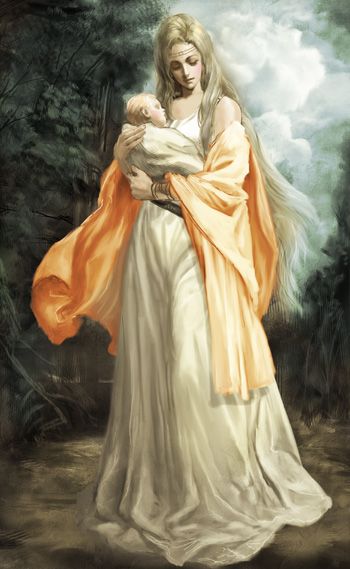Leto is a daughter of the Titans Coeus and Phoebe, the sister of Asteria.
Zeus is the father of her twins, Apollo and Artemis, the Letoides, which Leto conceived after her hidden beauty accidentally caught the eyes of Zeus. When Hera, the most conservative of goddesses for she had the most to lose in changes to the order of nature - discovered that Leto was pregnant and that Zeus was the father, she realized that the offspring would cement the new order. She was powerless to stop the flow of events. Hera banned Leto from giving birth on "terra firma", the mainland, any island at sea, or any place under the sun. Finally, she found an island that was not attached to the ocean floor so it was not considered land and she could give birth.

Comments
Post a Comment